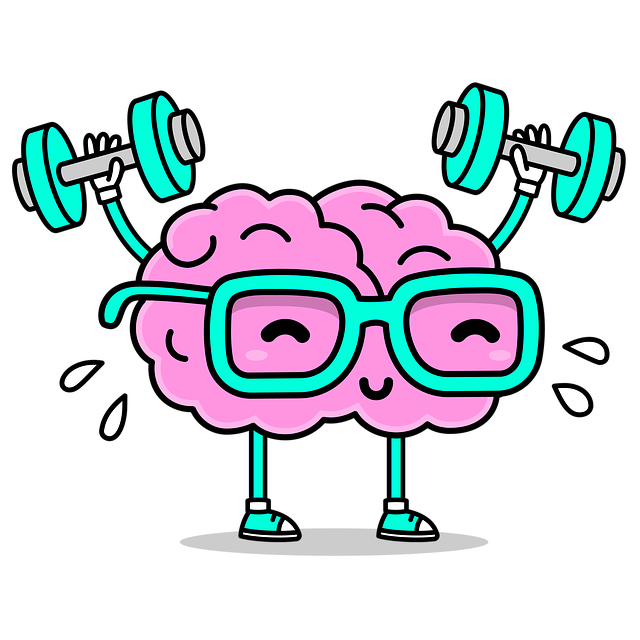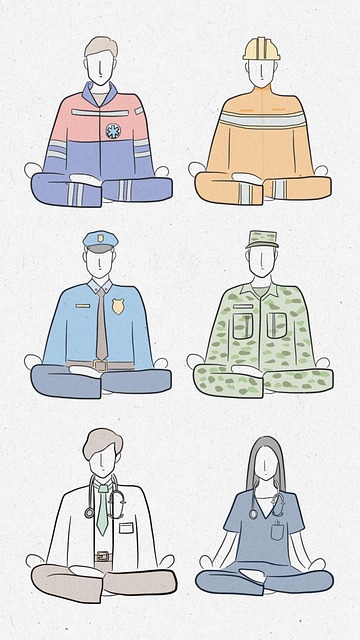In today's demanding world, prioritizing mental wellness is crucial. Self-assessment tools play a vital role in addressing Denver Couples Communication Issues Therapy by offering introspection and understanding emotional states. These tools help identify triggers, develop coping skills, and foster healthier relationships. For professionals, integrating self-assessments enhances client outcomes through holistic understanding, enabling tailored interventions and promoting practitioner self-care. Effective risk management is facilitated, ensuring professionals are equipped to support clients' mental wellness journeys. Future advancements in technology, like AI and machine learning, promise early detection and personalized interventions for Denver couples facing communication issues, revolutionizing mental health care.
In today’s fast-paced world, mental wellness self-assessment tools play a pivotal role in individual and couples therapy. This article explores the growing importance of these tools, specifically focusing on Denver Couples Communication Issues Therapy. We delve into the key features making effective self-assessments indispensable, offering a step-by-step guide for clinical integration. Additionally, we gaze into future innovations, highlighting advancements in mental health technology that promise to revolutionize self-assessment and therapy outcomes.
- Understanding the Need for Self-Assessment Tools in Mental Wellness
- Key Features of Effective Denver Couples Communication Issues Therapy Self-Assessments
- Integrating Self-Assessment into Clinical Practice: A Step-by-Step Guide
- Future Directions and Innovations in Mental Health Self-Assessment Technology
Understanding the Need for Self-Assessment Tools in Mental Wellness

In today’s fast-paced and often stressful world, prioritizing mental wellness is more crucial than ever. Self-assessment tools play a pivotal role in empowering individuals to take charge of their mental health, especially for those grappling with issues like Denver couples communication problems or other relationship therapy challenges. These tools provide an avenue for introspection, allowing people to gain profound insights into their emotional states and behaviors. By encouraging self-reflection, users can identify underlying triggers, develop coping skills, and foster healthier relationships.
For mental health professionals, integrating self-assessment tools into their practice enhances client outcomes. It facilitates a more holistic understanding of individuals’ psychological well-being, enabling tailored interventions. Moreover, it promotes self-care practices among practitioners, ensuring they remain equipped to support others effectively. Effective risk management planning is also facilitated through these tools, as they enable professionals to anticipate and mitigate potential challenges in their clients’ mental wellness journeys.
Key Features of Effective Denver Couples Communication Issues Therapy Self-Assessments

Effective Denver Couples Communication Issues Therapy self-assessments should be designed with several key features in mind. First and foremost, they need to provide a safe and non-judgmental space for individuals to openly reflect on their emotional regulation skills and patterns within the context of their relationship. This involves clear guidance that encourages honest and transparent communication about both strengths and challenges.
Incorporating mental wellness journaling exercises as part of these self-assessments can be immensely beneficial. By offering structured yet flexible prompts, they enable individuals to explore their thoughts, feelings, and behaviors more deeply. Additionally, including sections on self-care practices and strategies for healthy communication patterns fosters a holistic approach to addressing Denver Couples Communication Issues Therapy needs, ultimately promoting improved mental wellness.
Integrating Self-Assessment into Clinical Practice: A Step-by-Step Guide

Integrating self-assessment into clinical practice can significantly enhance therapy outcomes, especially in addressing Denver couples communication issues. It’s a powerful tool that enables therapists to gain deeper insights into their clients’ emotional well-being and mental health states. This process involves guiding patients through a series of steps to evaluate their current emotional intelligence, identify areas of concern, and assess their self-care routine development.
A step-by-step guide could include: 1) Educating clients on the importance of emotional awareness; 2) Facilitating self-reflection through prompts tailored to common communication issues in couples therapy; 3) Encouraging clients to track their stress levels and management strategies using workshops or online resources; 4) Analyzing the data collected to pinpoint patterns and areas for improvement, fostering a more targeted therapeutic approach. This holistic integration of self-assessment supports not just managing existing problems but also promotes proactive mental health through effective stress management techniques.
Future Directions and Innovations in Mental Health Self-Assessment Technology

The future of mental wellness self-assessment tools looks promising, with technology playing an increasingly significant role in early detection and intervention. As our understanding of mental health expands, so does the potential for innovative digital solutions. One area of focus is the integration of artificial intelligence (AI) and machine learning algorithms to analyze patterns and provide personalized recommendations, offering a more tailored approach to Denver couples communication issues therapy. These advanced tools can adapt to individual needs, making depression prevention strategies more accessible and effective.
Additionally, there is potential for the development of comprehensive digital platforms that not only assess mental health but also facilitate access to relevant resources, support groups, and evidence-based practices. By combining self-assessment with interactive features, these platforms could empower individuals to take charge of their mental wellness. Such advancements have the capacity to revolutionize how we address mental health concerns, especially when coupled with effective conflict resolution techniques and integrated into broader Mental Health Policy Analysis and Advocacy efforts.
The development of mental wellness self-assessment tools, particularly tailored for Denver Couples Communication Issues Therapy, is a significant step forward in accessible mental healthcare. By equipping individuals with the means to assess their own mental well-being, these tools democratize therapy and support. As technology advances, we can expect innovative solutions that enhance user experience and accuracy, revolutionizing how people navigate their mental health journeys. Integrating self-assessment into clinical practice has the potential to improve outcomes, foster early intervention, and create a more inclusive and efficient mental health system.














